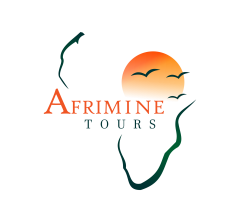Safari Guide for Beginners
Your Safari Guide for Beginners
What we talk about when we talk about safari
Let´s start with some basic terms:
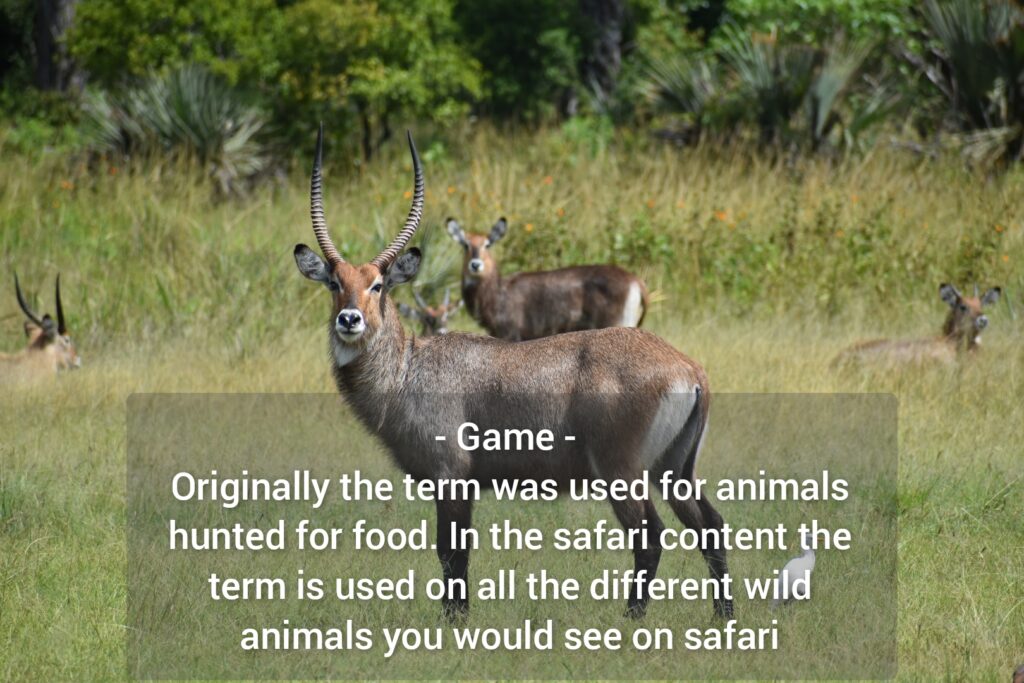
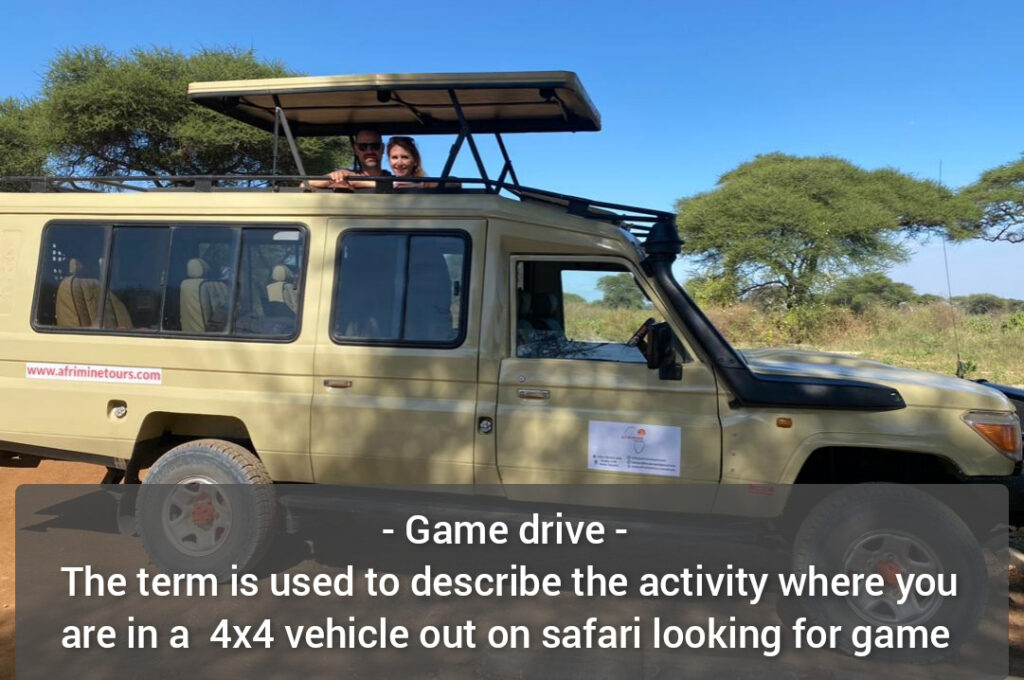
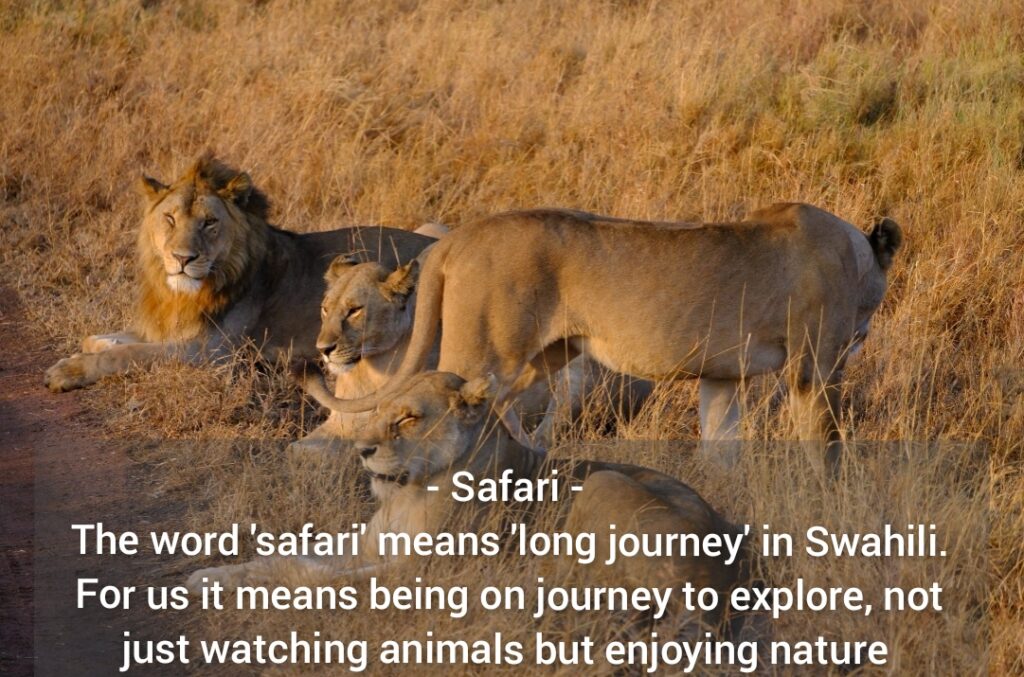
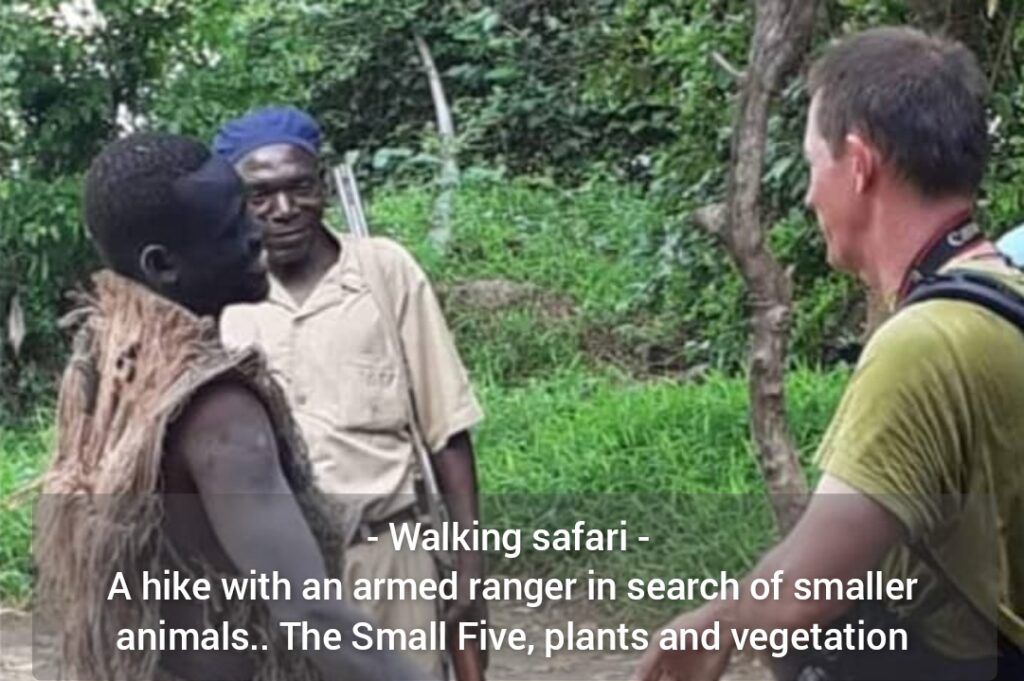
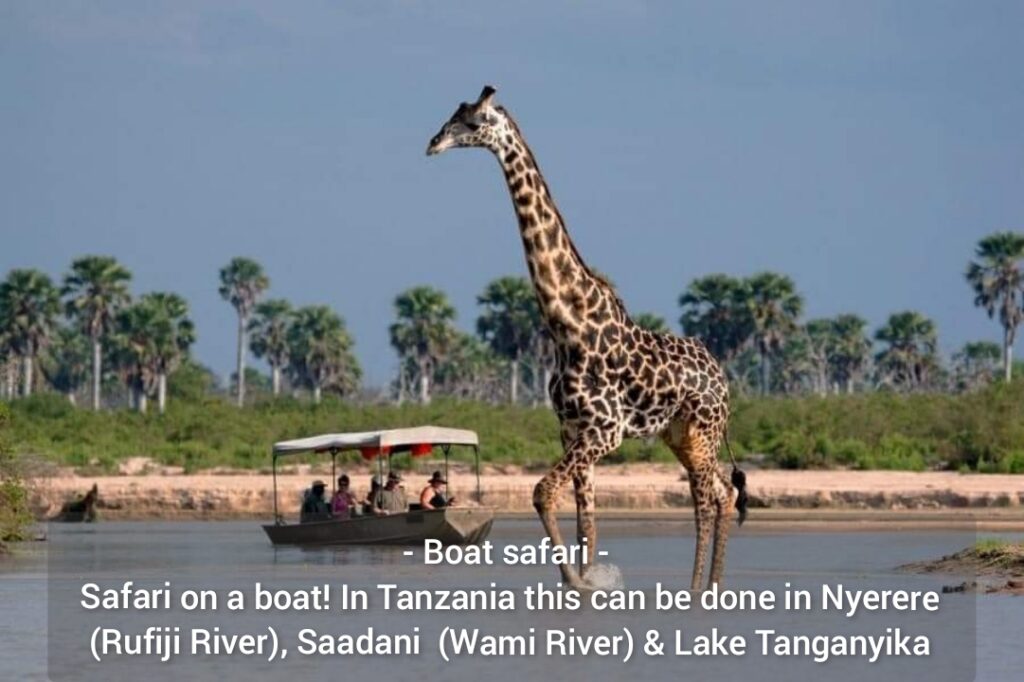
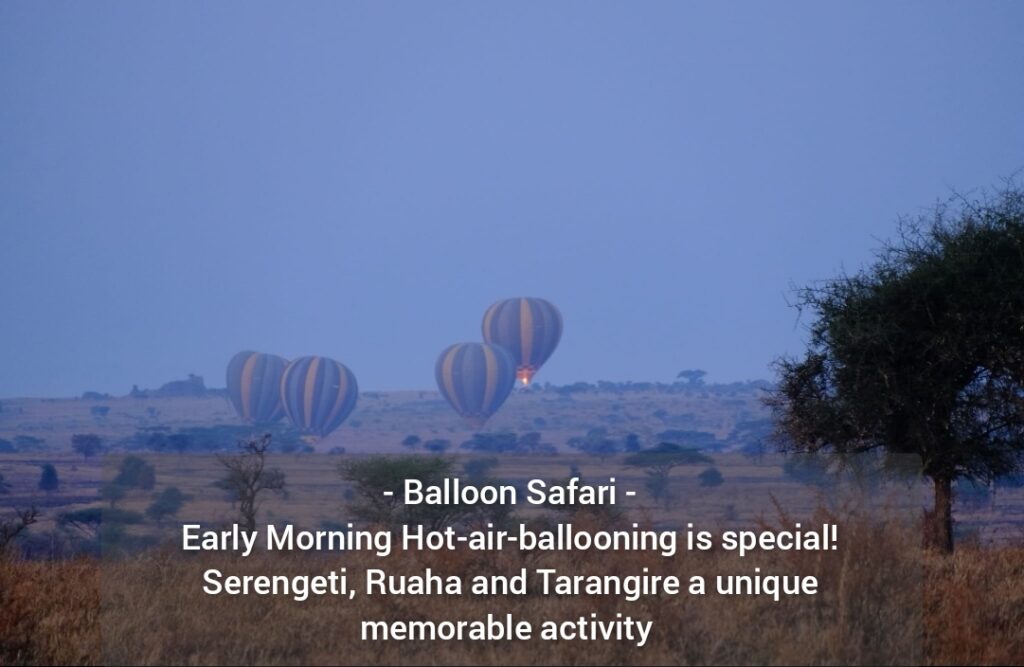
Accommodation on safari
Basically you can get whatever you want in all price-ranges. And as anywhere else in the world, quality and cost have a certain connection for obvious reasons.
Very luxurious camps and lodges on safari are very seldom worth their price. You don’t spend a lot of time in the room or at the campsite (since you are out for game-drives most of the day). So no need to go for the top level unless you plan to stay in camp all day!
The most luxurious camps and lodges can charge 1000 USD per night / person.
There are plenty of options to enjoy your stay in accomodation for a lower price. Good quality of food and a good guide are critical elements to have a successful and memorable trip.
Different type of safari accommodation:
∼ Lodge
A lodge is a permanent structure inside or outside a reserve. Rooms are often large canvas tents on permanent structures, stone bandas or even similar to hotel rooms in some places. In larger reserve a lodge can even be pretty much like a hotel, especially in larger reserves that are well developed and frequently visited by safari travelers. So needless to say, a lodge can basically be of any kind of permanent structure. Many lodges have pools, and electricity are more common to be supplied 24/7 in opposition to the other types of accommodation types.
∼ Tented Camp
A tented camp is like a lodge permanent but smaller and more intimate. A normal size tented camp will have anywhere from 6-12 tents. As the word express, accommodation will be in large canvas tents, often with a permanent structure or deck around. Normally electricity is provided by generator a few hours per day. Facilities are often good, and many tented camps will also have a pool. Dining area is often permanent but open buildings with thatched roof. You will find tented camps both inside and outside reserves, often close to waterholes or other attractions where animal roames.
∼ Fly Camp / Mobile Tented Camp
Glamping! Smaller than tented camps, with only semi-permanent structures to have minimal impact on nature. Often seasonal camps depending on areas, and some camps move several times per year to follow special events like the Great Wildebeest Migration in Serengeti. When they pack up, there should be no visible signs left of the camp. Do not expect any pool or high luxury facilities, but do expect the best locations! These camps are set for the best safari experience and creates an intimate atmosphare shared with other safari enthusiasts. Often not more than 4-8 tents, and often most costly.
∼ Camping
This is camping, more or less like you know it from back home, with a few upgrades. We provide dome tents, portable shower and portable toilet and set up our own camp for you. We will provide safety for those who like with an armed ranger, and a chef will provide the cooking. Other than that it´s you and the wilderness! You have the opportunity to do camping at public camping sites where others can also set camp, or we can provide special private camping sites where you are the sole camper. Although primitive, it could provide a fantastic and “raw” African wilderness experience !
It´s important to mention, that the type of accommodation does not necessarily say anything about standard of the place! So just because you choose a specific type of accommodation,
does not mean you have a set standard. Lodges & tented camps in particular comes in all
shapes and all standards.
Just to give you an idea of what to expect:
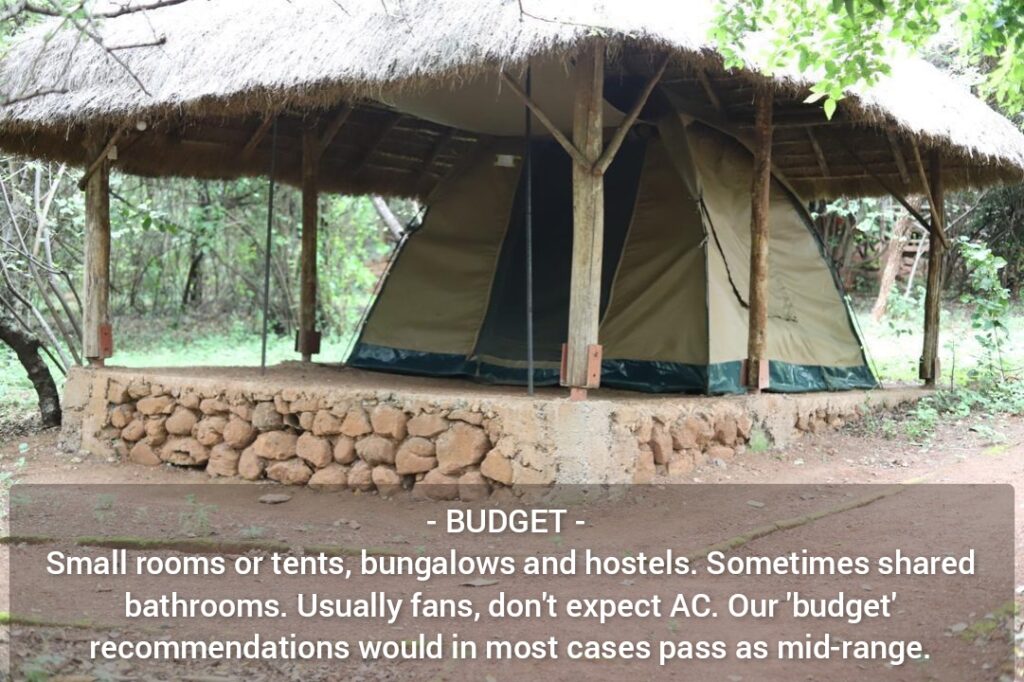
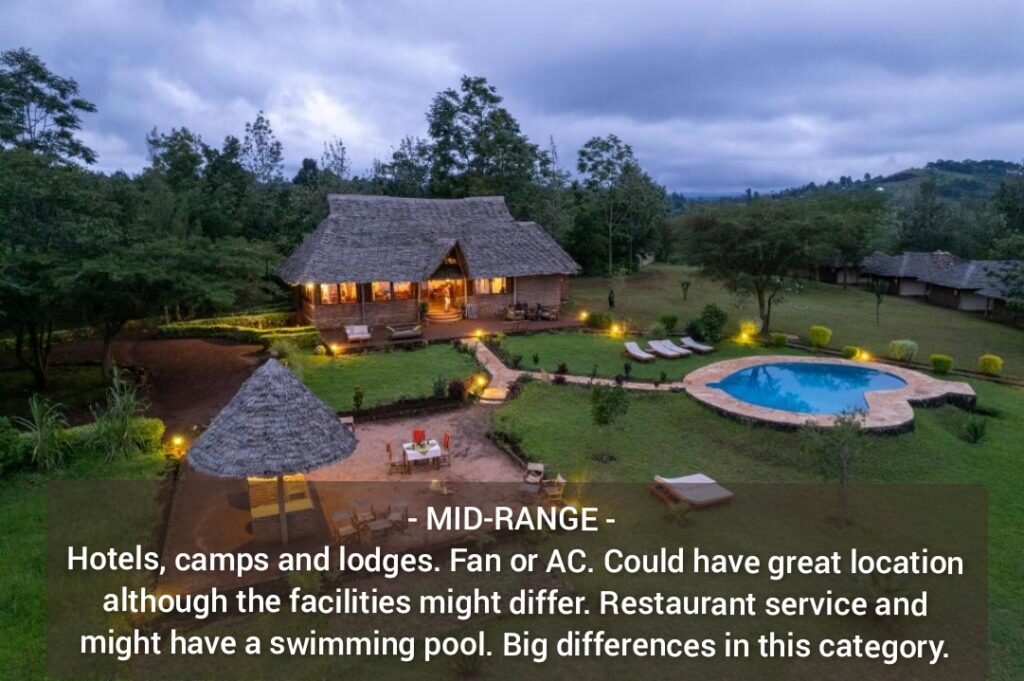
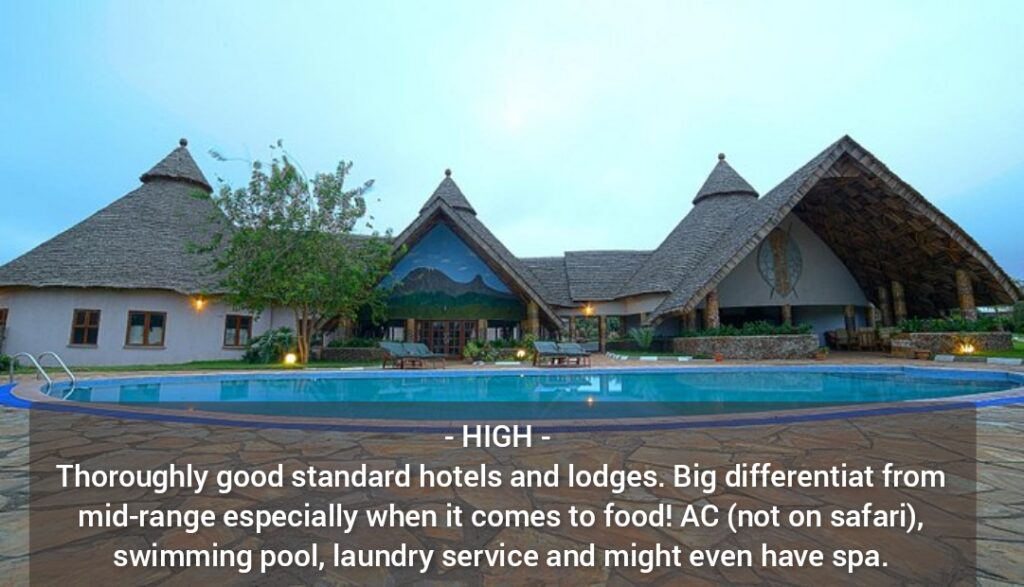
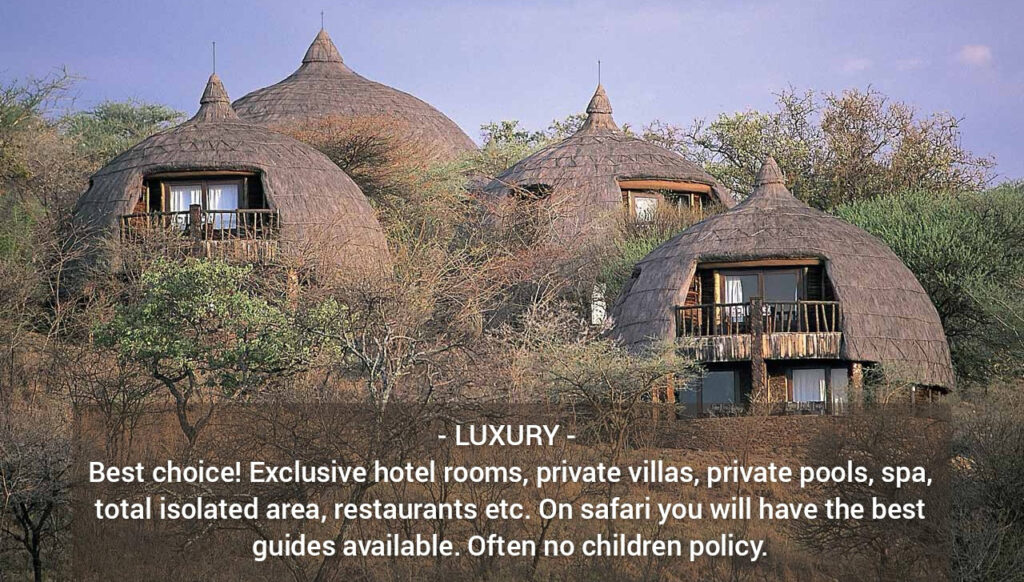
Meal explanation:
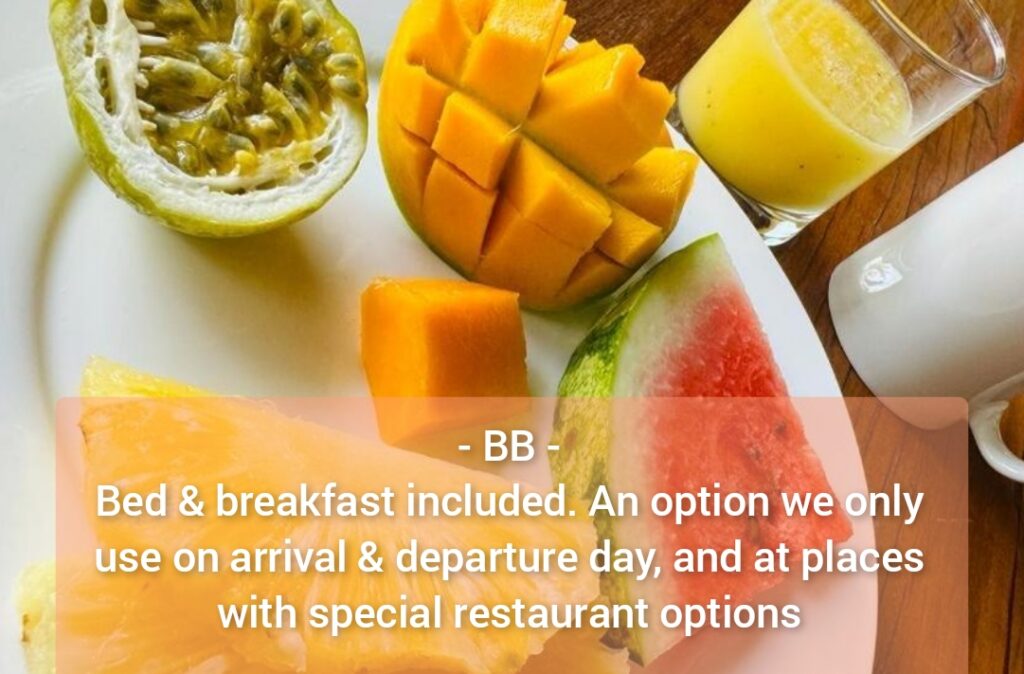
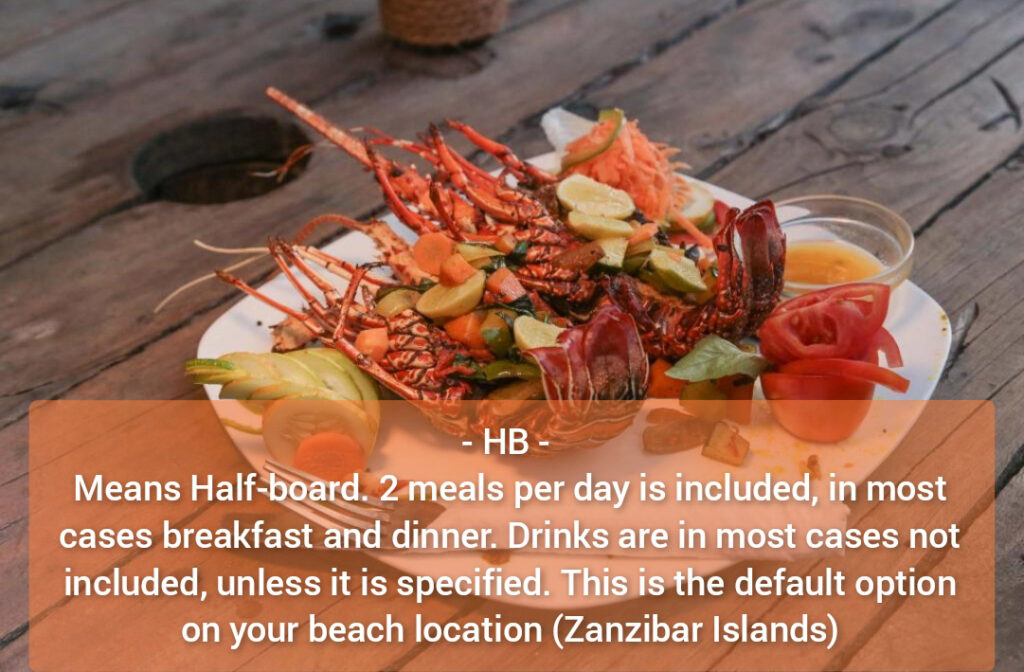
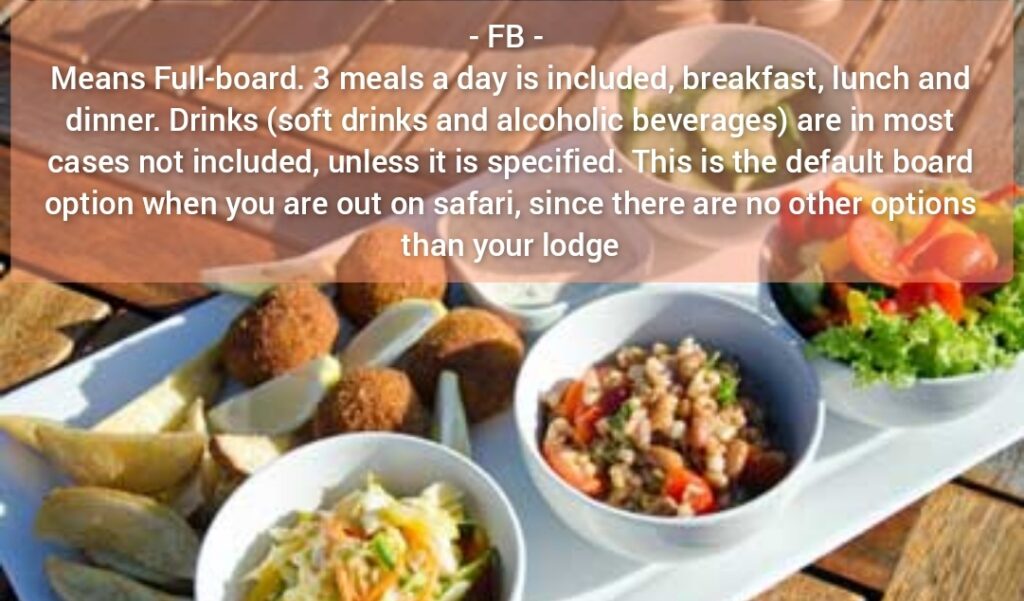
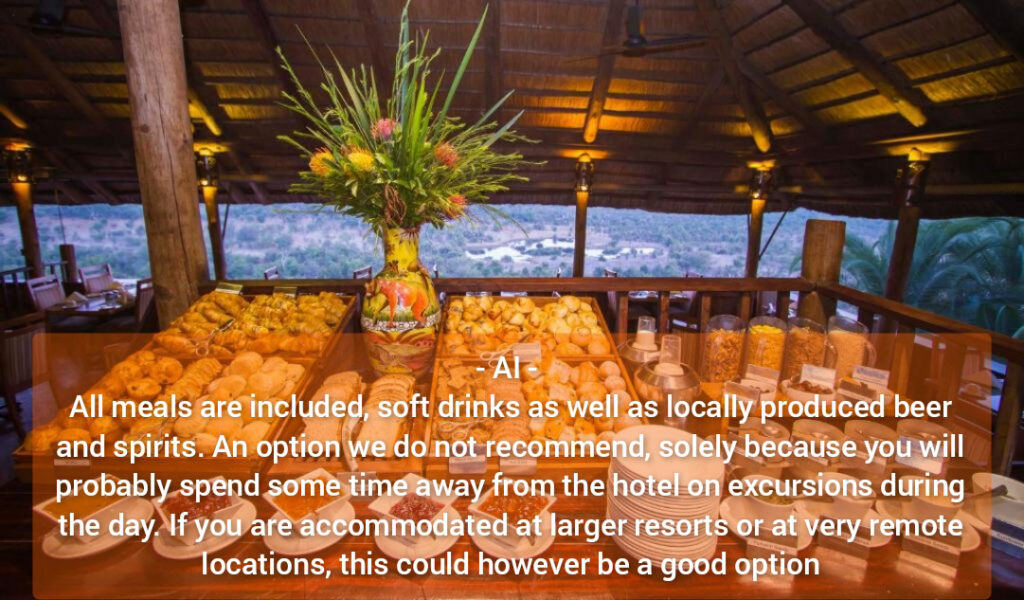
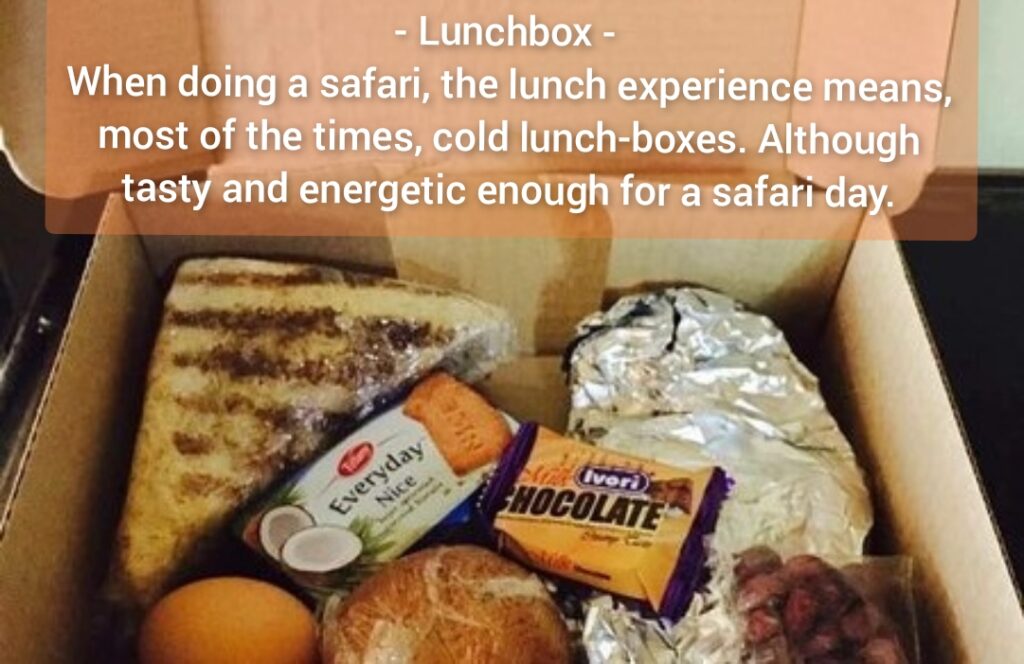
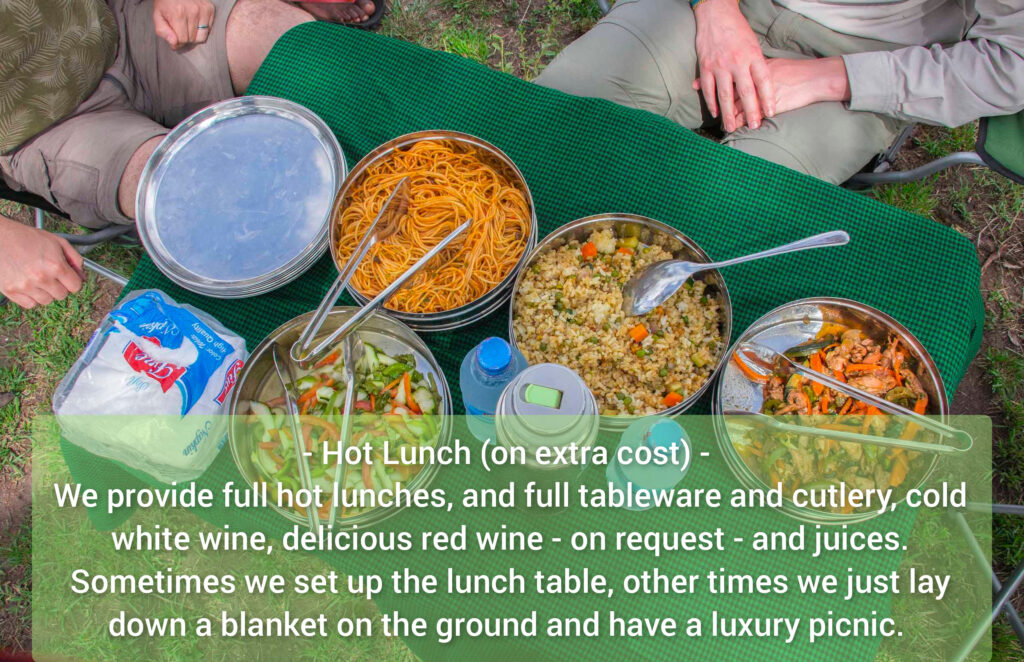
How to choose your accommodation
Tanzania offers all classes and standards when it comes to accommodation! Sometimes a great place can have a bad web-page that doesen’t really give the right impression. On the other hand, some places can seem really nice on their webpage, but might actually use pictures from other places to look more attractive than they really are.
Once you are there, it might be too late to change the hotel, so that’s why you shouldn’t book a hotel or accommodation yourself in Africa without doing a significant amount of research. Pages like TripAdvisor can be of good help, but needs to be read with a certain level of scepticism.
While TripAdvisor and similar sites, as well as information on a webpage could provide good information, do not blindly trust what you read. A place can change owners, which affect the whole experience of a place, and there is very little control and justice of what is written on webpages in many African countries.
A place could pretend to be a 5 star luxury resort with fantastic pictures, but in reality they are a mid-range 3 star hotel, who got some lucky shots in the dark of their facilities. Just because a company can create a great web-page, does not mean they understand and can provide a great stay for the customers. So please trust our advice here.
By booking through Afrimine Tours you can be sure you get the right information about your accommodation. We have approved all the places we recommend and visit the places regulary to make sure we have updated information about the stay. That allows us to secure the standard you want, to the price you expect!
The most important thing is that you tell us what you are looking for, and together we will find the best option for your budget and time of travel, since this might also vary!
The BIG Questions
Budget and cost are naturally linked to what you want to do and experience on your journey, that´s a given. What might not be a given is that if you know when you want to go, you should be open to which destinations you visit in Tanzania, as quality of areas varies can vary a lot during the different seasons. So you should never have the mindset of ‘I want to visit area X during time Y’ unless you know that the area is suitable for the activities you want to do, during that particular time. So let´s jump straight into the elements that affects the price, and what you have to expect to pay for a good safari adventure.
Note: Keep in mind that we customize your trip, based on the budget you have at hand.
Budget & Cost
A safariday, including accommodation, food, park fees and game-drive, costs between 400 – 1.000 USD per day.
A mid-range to high 14 day holiday with 40/60 safari activities and beach vacation, with full-board on safari and half-board at the beach location is between 3.500 – 5.000 USD and above (excl. int.flights)
Factors that affects the price
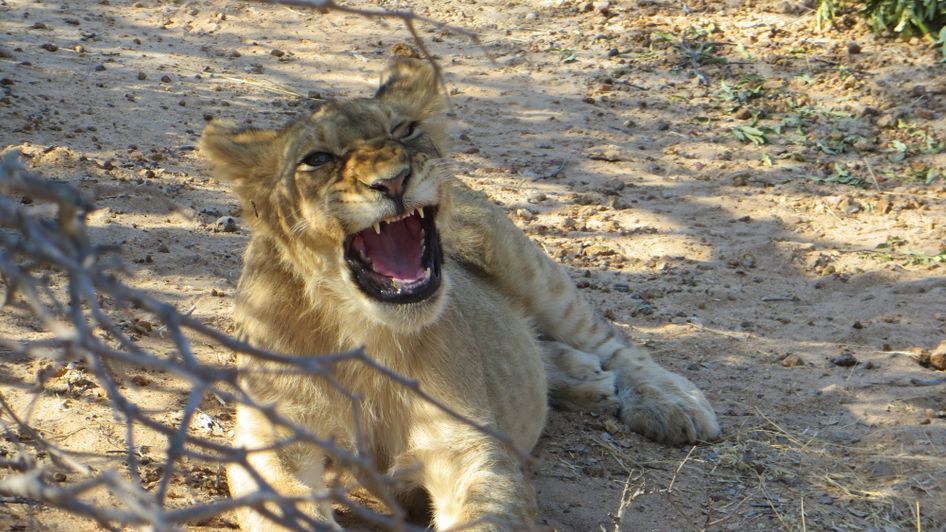
Your Group size
Especially regarding drive-in safaris. The cost of a car/driver/guide per day, are mostly the same no matter how many people that is in a car. So more people = more to split the cost between. Safari cars normally come in 2 types: normal car with 6 seats, and extended safari vehicles with 8 seats. One seat is naturally occupied by the drive guide. For short safaris you might be fine using the front seat, but for longer safari adventures we recommend 4 pax in the normal car, and 6 pax in the extende cars, as you are likely to have luggage as well.
Room arrangements
It goes without saying that that sharing rooms (within your family) is a cheaper option. If you are friends traveling, there could be a good idea to save if you choose a double room with twin beds, instead of 2 single rooms. Families can also cut a good deal, as many places have family rooms or interconnecting rooms.
Accommodation standard
While you are on safari, you will most likely not spend that much time in your room. So going for the absolute top level of accommodation could be throwing money out the window. This is where it is vital to have a good safari planner, so that you can get proper advise on what lodges or camps that could fit both your requirements and your budget. Because this is really hard to do by yourself, as many lodges and camps aren´t even listed on booking sites.
Length of your safari
The most costly part of your trip will probably be the safari. So if you plan a week safari in luxury accommodation, be prepared to pay a substantial amount for your safari. For most customers than have never been on safari before, 3-4 days on safari in one park or 5-7 days roadtrip with 2-4 parks would normally be enough. Park fees and other fees linked to various reserves can be a tricky calculations, so providing a sensible and smart route for your safari is essensial. Fees vary a lot. But never complain about the wildlife fees, they are what protects the animals that you are paying to see – so this is a good investment for everyone!
Time of travel / season
Camps, lodges & hotels operate with seasons, and can operate with different seasons in terms of pricing even though they are right next to each other! And if you are traveling when a season shifts, prices and easily double or be cut in half over night. ‘Low season’ does not neccesarily refer to a bad time to travel to a certain area. It´s just that few people normally travel during that time, because it could be out of normal holidays. One solid example here is that May is considered low season in Serengeti because it is at the end of the defined ‘wet season’. However Serengeti has statistically very little rain during this period, but amazing and green areas and very little tourists – it´s the perfect time to go, and the prices are also perfect!
Although this varies a lot from lodge to lodge and area to area in Tanzania, this is normally how seasons are set in our country:
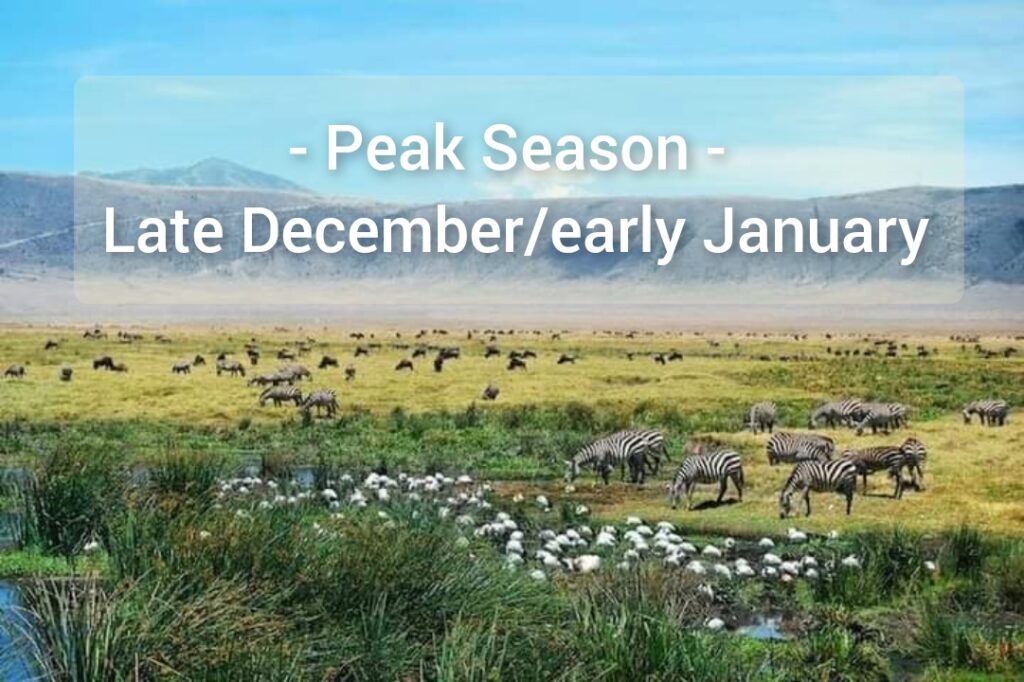
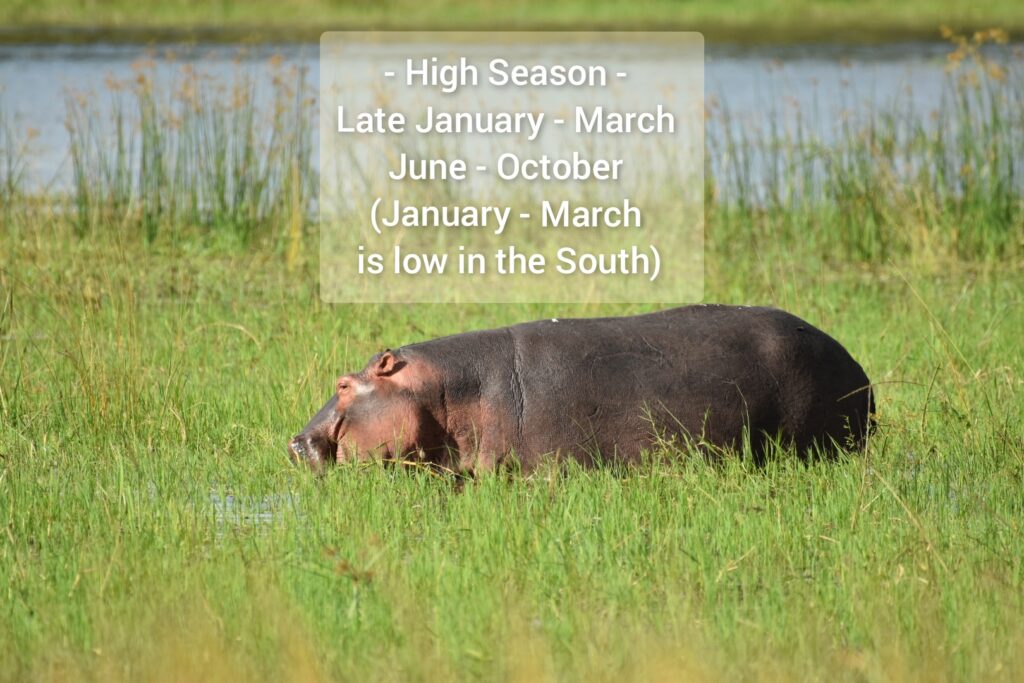
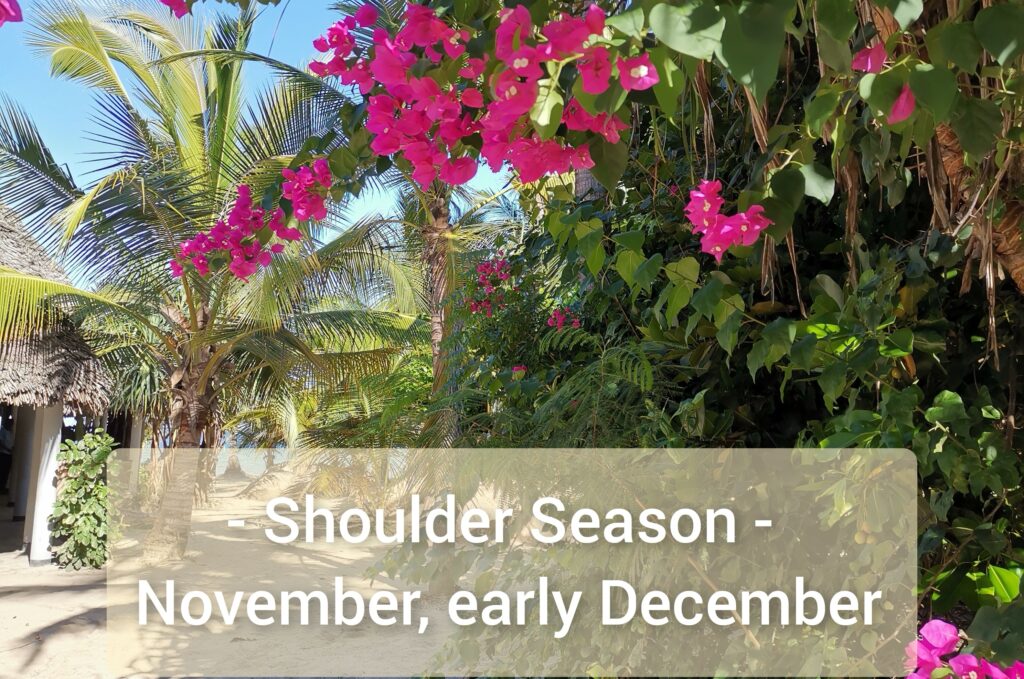
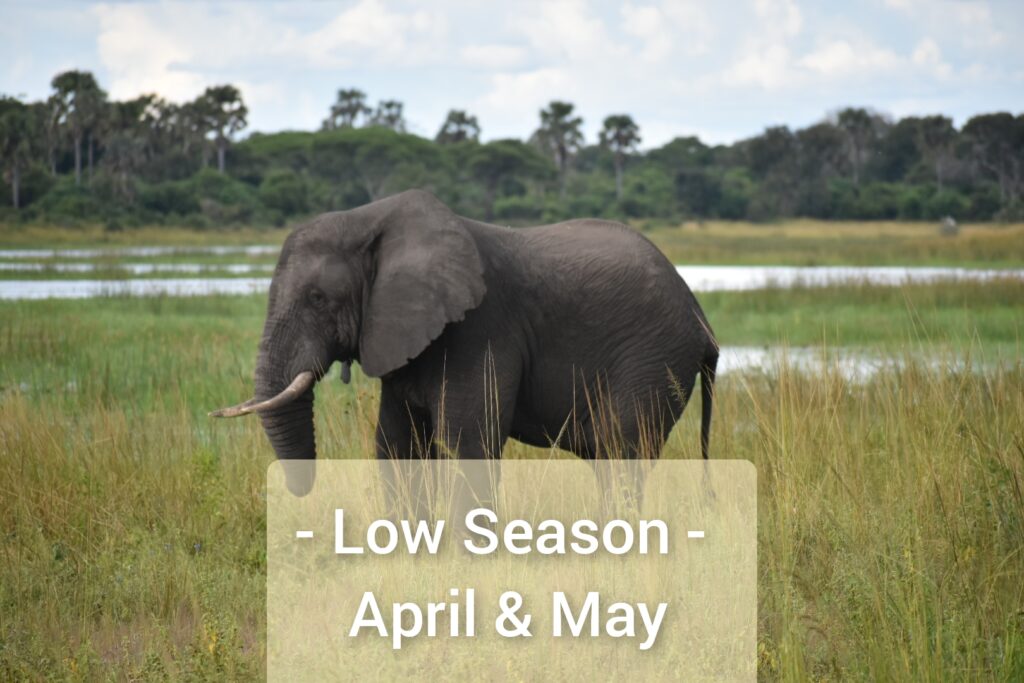
When to go in North & South, West and East?
January marks the end of the shorter rainy season (vuli), and Tanzania’s “short, dry season” begins, lasting for a few months before it begins to rain again in late March. High temperatures in January are generally in the 27°C while lows range from the upper 20°C. Travelers should be prepared for clear, sunny days with short-sleeved shirts and shorts or zip-off pants.
February is typically the warmest month in Tanzania, with high temperatures reaching the upper 27°C in some areas. Be prepared with short-sleeved shirts and shorts or zip-off pants. The short rains can continue into February, so occasional showers are possible.
This is a great time to explore the Southern areas. Not too hot and green after the rain. North can be busy but are still nice to visit, especially early summer.
All areas are good! The rough West with remote and secluded experiences are at its best since this is the peak of the dry season in Tanzania.
All areas are good! You could expect a small shower now and then.
Final Tips
START PLANNING EARLY
A trip like this should not be a last minute deal. Planning your safari should be an adventure in itself. In most cases, the earlier you book, the better prices you will get. And the most sought after camps and lodges fill up early – some a year in advance!
